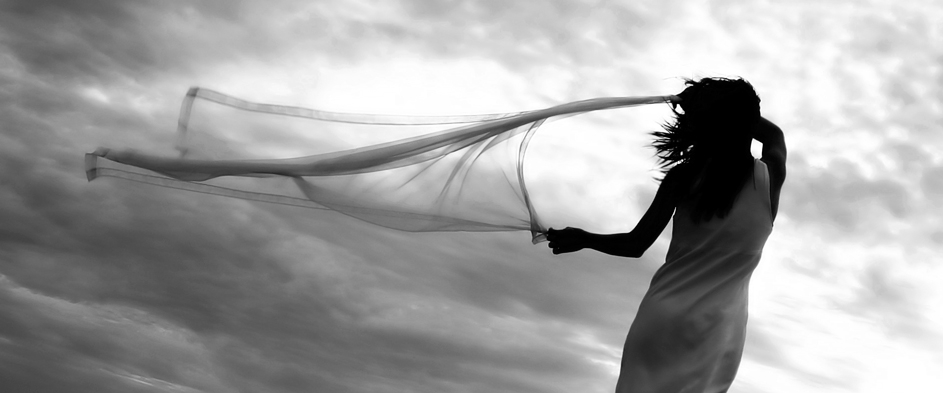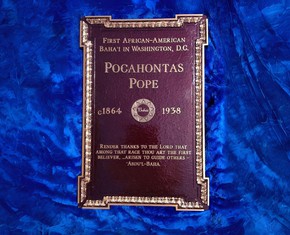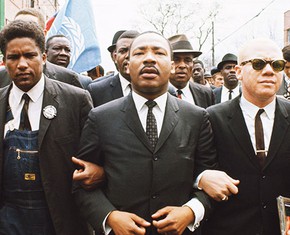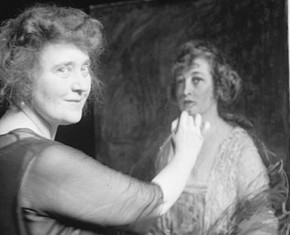The views expressed in our content reflect individual perspectives and do not represent the authoritative views of the Baha'i Faith.
The Persian poetess and theological scholar Tahirih (the Pure One), also referred to as Qurratu’l-’Ayn (Solace of the Eyes), received the gift of learning to read and write in a society where daughters were only taught domestic arts. Her father noted her thirst for knowledge and her quick intellect and secretly gave Tahirih this precious opportunity. Her insatiable curiosity led her to peruse the writings of the Bab, the prophet of whose teachings Tolstoy wrote:
…inasmuch as they keep to the principal fundamental ideas of brotherhood, equality and love, have a great future before them… I sympathize with Babism with all my heart inasmuch as it teaches people brotherhood and equality and sacrifice of material life for service to God. – Leo Tolstoy, quoted in Appreciations of the Baha’i Faith, p. 35.
Tahirih instantly accepted this new Faith, and became one of its early champions:
The appearance of such a woman as Qurratu’l-’Ayn is in any country and any age a rare phenomenon, but in such a country as Persia it is a prodigy—nay, almost a miracle. Alike in virtue of her marvelous beauty, her rare intellectual gifts, her fervid eloquence, her fearless devotion and her glorious martyrdom, she stands forth incomparable and immortal amongst her countrywomen. Had the Babi religion no other claim to greatness, this were sufficient—that it produced a heroine like Qurratu’l-’Ayn. – Myron H. Phelps, Appreciations of the Baha’i Faith, p. 16.
Here is a woman who dared to debate with Islamic theologians and won their grudging respect, who wrote mystical poetry that is beloved to this day in Persia, who at the very same time as the first women’s conference took place in Seneca Falls, NY, dared to remove the veil from her face at a male-only conference. The only female among the Letters of the Living, as the 18 original disciples of the Bab were known, Tahirih was divorced by her husband who also ensured she would never again see her children. She refused an offer of marriage from the Shah. Entirely devoted to her new Faith, she gave up her life for it—strangled with her own scarf, tossed into a well and covered with stones. Her prophetic dying words: “You can kill me as soon as you like, but you cannot stop the emancipation of women,” echo throughout the years and her story continues to inspire women and men all over the world.
Abdu’l-Baha wished to raise the status and the spiritual conscience of women.
I am endeavouring, with Baha’u’llah’s confirmations and assistance, so to improve the world of the handmaidens that all will be astonished. This progress is intended to be in spirituality, in virtues, in human perfections and in divine knowledge. – Abdu’l-Baha, quoted in Women, Compiled by the Research Department of the Universal House of Justice.
Tahirih is an excellent example of Abdu’l-Baha’s wish and serves as an inspiration for women everywhere.
Picture Tahirih, speaking to the wife of the governor in whose home she has been under house arrest. Knowing her death at the hands of the authorities is imminent, she endeavors to put at ease the mind of her hostess, who has grown very fond of Tahirih:
What comes to pass tonight is what must be. My breath must be taken so that the words that lived upon that breath shall live forever. They shall be surprised, shall they not? That such a little breath, so small, held in here, shall leave this body and grow colossal, spreading into all the lands in the world! – Terre Ouwehand, Voices from the Well 2, p. 90.
Tahirih then sagely laments:
It is a sad streak in humankind that—requires—such deeds to open their minds, their hearts, their eyes. From those who grow old happily, content, full of many thoughts and much wisdom, full of God’s gifts, few will learn, few will seek them, few will listen. Even their own progeny are quick to be about the world, to join the swirling dance of this life, and leave the wise ones in their dust. The old ones sleep with their quiet truths.
Those who are crucified, stoned, burned, have the breath wrenched out of them—they teach. They are heard. Their tragedies widen the eyes of the people and unstop their ears. The world is a bazaar; the strollers are moved by spectacle. So it was that I appeared before the assembly unveiled—to move them—to move their blood, their brains, their souls! – Ibid., p. 91
That is exactly what Tahirih’s martyrdom has done. From the bottom of the well where she died, Tahirih’s strength, conviction, faith, purity and love affects all who learn of her life. Her poetry, beloved in her native Persia, is now being translated and widely read in the English-speaking world. The example of her life, as well as her writings, moves and motivates people’s souls everywhere. Let’s consider again this quotation from Part One of this series:
The world of humanity has two wings—one is woman and the other man…Should one wing remain weak, flight is impossible – Abdu’l-Baha, Foundations of World Unity, pp. 29-30.
Countless women from all societies, cultures, nations and faith traditions, from every corner of the earth, have inspiring and moving stories. Seek them out, read about them, and be moved to help bring about the equilibrium of the world by resting not until we’ve brought true equality and freedom to both men and women.
















Comments
Sign in or create an account
Continue with Googleor